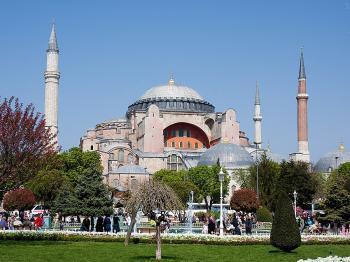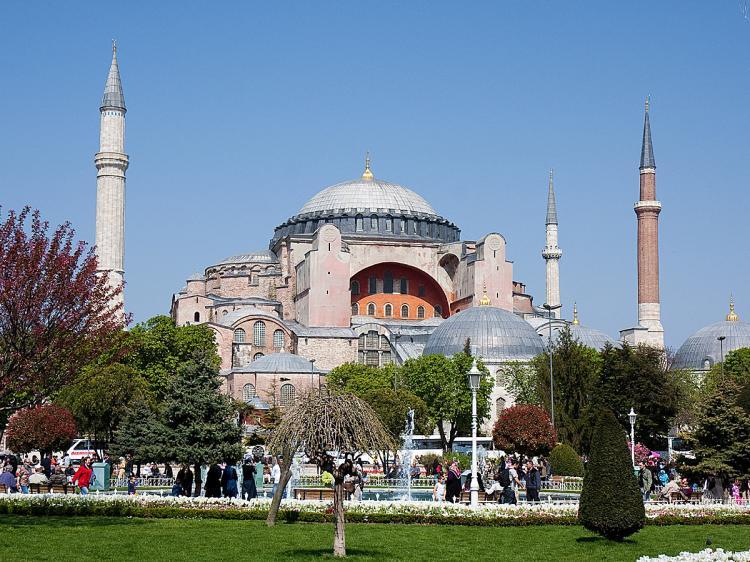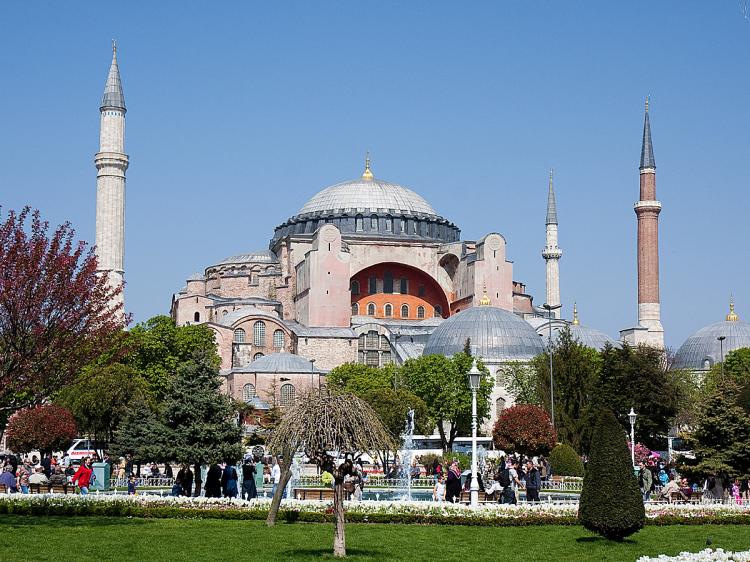GOTHENBURG, Sweden—The Swedish Parliament has decided to acknowledge the 1915 massacre in the Ottoman Empire as genocide, but it happened against the wishes of both the government and the leader of the biggest opposition party, as representatives on both sides voted against party lines.
The issue has now grown into both a diplomatic problem between Turkey and Sweden as well as a domestic debate about who actually controls foreign policy in Sweden. The resolution passed by just one vote.
Swedish Foreign Minister Carl Bildt was quick to call the decision “deeply regrettable” on his blog. He is worried that anti-reformists within Turkey would use this in their attempts to make normalizing relations between Turkey and Armenia more difficult.
Turkey reacted by swiftly withdrawing their ambassador from Sweden for consultations and Turkish Prime Minister Erdogan has canceled his planned visit to Sweden. Sweden normally has very good relations with Turkey, but this decision has angered both the Turkish government and many Turks.
One of the issues that Sweden focused on during their chairmanship of the European Union last year was the question of Turkey’s application for membership into the union. Turkish membership is controversial, and one of the reasons is that their human rights record is not seen as living up to European standards. More than 20 countries have recognized what happened in 1915 as genocide, and Turkey is under certain pressure to deal with this aspect of its past, as a way to demonstrate that it respects the rights of its minorities.
The massacre in 1915 was a result of Muslim Turkish rulers of the Ottoman Empire siding with the Germans during World War I, while some of the repressed minorities, mainly Christian, sided with Russia. An unknown number of Armenians, Chaldeans, Greeks, Syrians, and Assyrians, some claim as many as 1.5 million, were deported or killed as modern Turkey rose from the ashes of the Ottoman Empire.
Turkey does not recognize the events as genocide. It claims that some 400,000 people died, mostly in battles. It is illegal to call the events genocide in Turkey. There is a lot of nationalist pride in Turkey and people don’t want the birth of their nation to be associated with genocide.
Some Swedish commentators feel that the question of whether it was genocide or not (the term genocide and conventions regarding it did not appear until the 1940’s) should be appraised by historians and not politicians. Others argue that this recognition is welcome and long overdue and that the stance of the Swedish government and the leadership of the biggest minority party, the Social Democrats, are shameful. The debate has become quite heated on blogs.
Meanwhile, some of the focus in Swedish media has also shifted to the question of how Parliament came to vote against the government line, which is very unusual in Sweden, and to question the stability of Swedish foreign policy and who is really in charge of it.
Last week, Turkey also pulled its ambassador from the United States after the House Foreign Affairs Committee narrowly passed a nonbinding resolution, 23 votes to 22, naming the 1915 killings as genocide.
The issue has now grown into both a diplomatic problem between Turkey and Sweden as well as a domestic debate about who actually controls foreign policy in Sweden. The resolution passed by just one vote.
Swedish Foreign Minister Carl Bildt was quick to call the decision “deeply regrettable” on his blog. He is worried that anti-reformists within Turkey would use this in their attempts to make normalizing relations between Turkey and Armenia more difficult.
Turkey reacted by swiftly withdrawing their ambassador from Sweden for consultations and Turkish Prime Minister Erdogan has canceled his planned visit to Sweden. Sweden normally has very good relations with Turkey, but this decision has angered both the Turkish government and many Turks.
One of the issues that Sweden focused on during their chairmanship of the European Union last year was the question of Turkey’s application for membership into the union. Turkish membership is controversial, and one of the reasons is that their human rights record is not seen as living up to European standards. More than 20 countries have recognized what happened in 1915 as genocide, and Turkey is under certain pressure to deal with this aspect of its past, as a way to demonstrate that it respects the rights of its minorities.
The massacre in 1915 was a result of Muslim Turkish rulers of the Ottoman Empire siding with the Germans during World War I, while some of the repressed minorities, mainly Christian, sided with Russia. An unknown number of Armenians, Chaldeans, Greeks, Syrians, and Assyrians, some claim as many as 1.5 million, were deported or killed as modern Turkey rose from the ashes of the Ottoman Empire.
Turkey does not recognize the events as genocide. It claims that some 400,000 people died, mostly in battles. It is illegal to call the events genocide in Turkey. There is a lot of nationalist pride in Turkey and people don’t want the birth of their nation to be associated with genocide.
Some Swedish commentators feel that the question of whether it was genocide or not (the term genocide and conventions regarding it did not appear until the 1940’s) should be appraised by historians and not politicians. Others argue that this recognition is welcome and long overdue and that the stance of the Swedish government and the leadership of the biggest minority party, the Social Democrats, are shameful. The debate has become quite heated on blogs.
Meanwhile, some of the focus in Swedish media has also shifted to the question of how Parliament came to vote against the government line, which is very unusual in Sweden, and to question the stability of Swedish foreign policy and who is really in charge of it.
Last week, Turkey also pulled its ambassador from the United States after the House Foreign Affairs Committee narrowly passed a nonbinding resolution, 23 votes to 22, naming the 1915 killings as genocide.




